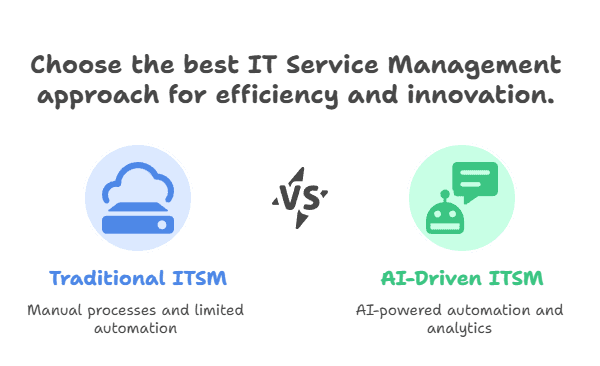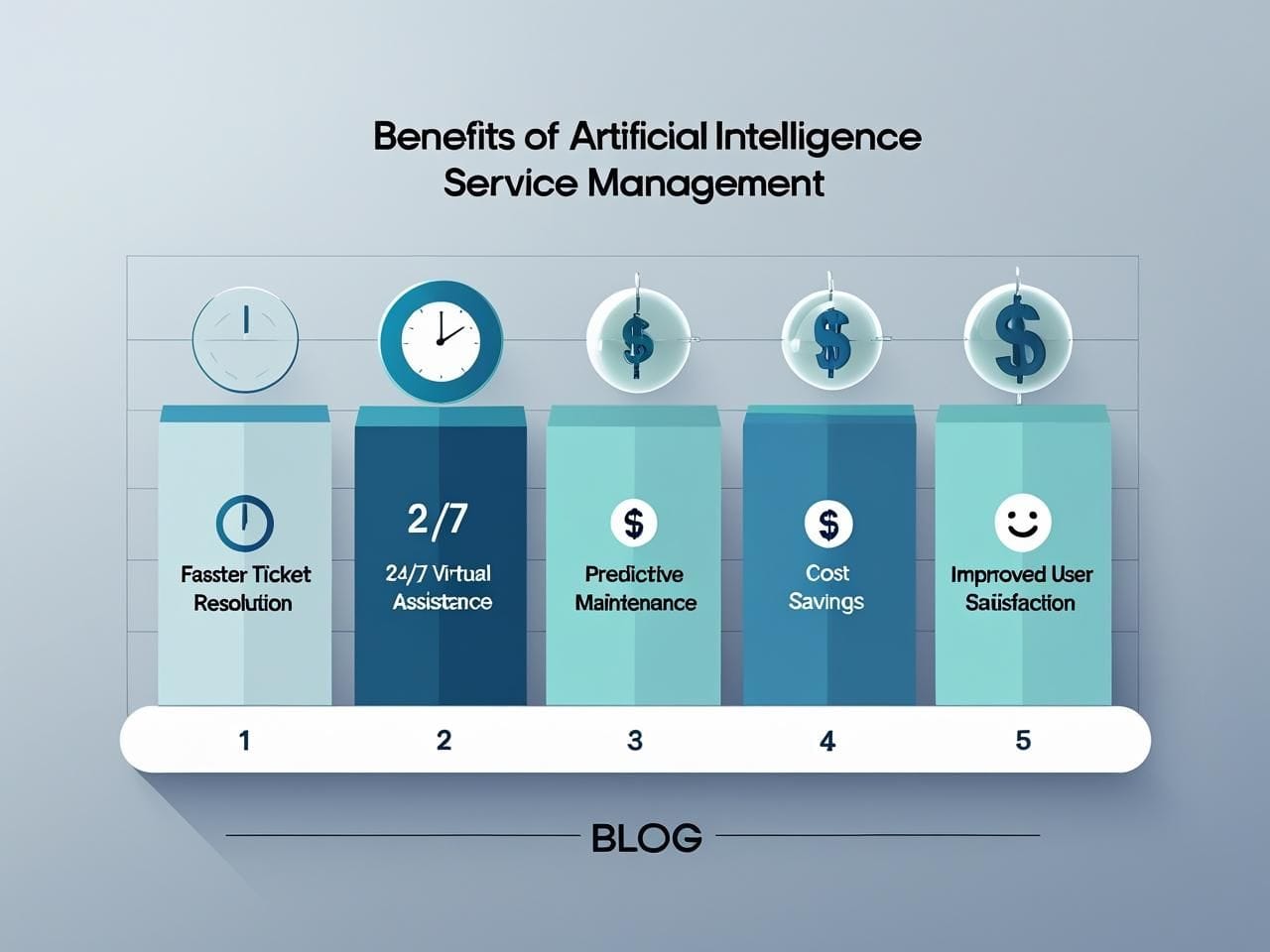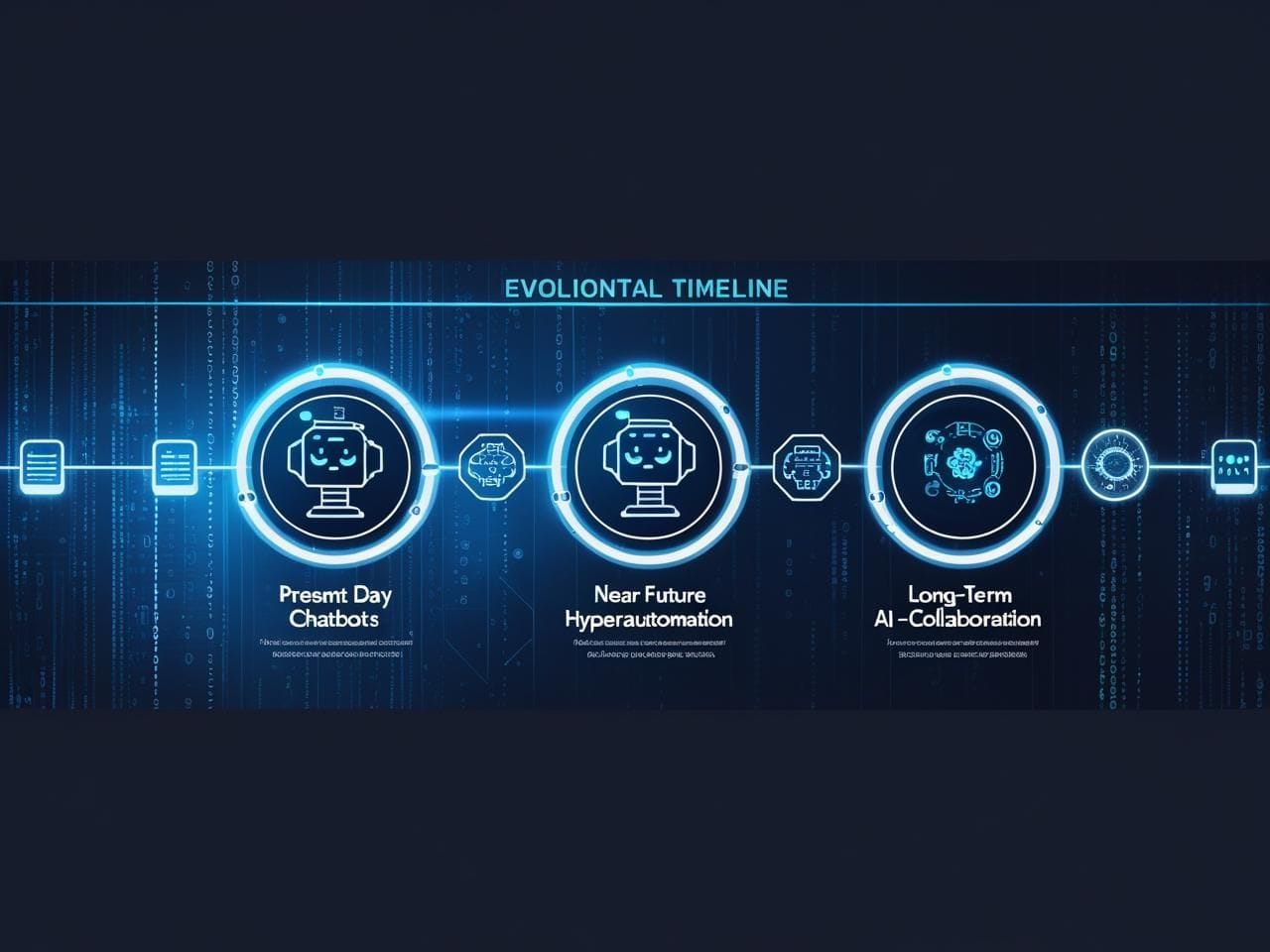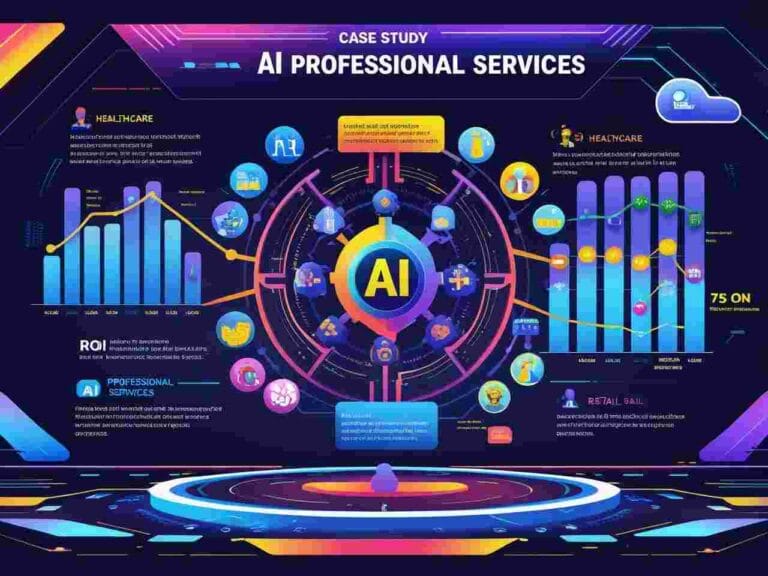7 Powerful Artificial Intelligence Service Management Trends
Introduction
Imagine a world where your IT problems get solved before you even know they exist. Where service desks no longer feel like long queues of frustration, but seamless experiences powered by intelligence. That’s not science fiction—it’s the reality being shaped by Artificial Intelligence Service Management.
From banking to healthcare to retail, AI quietly transforms how businesses operate. But perhaps nowhere is this change more visible than in IT service management. Gone are the days of repetitive manual tickets, delayed responses, and overwhelmed support teams. With Artificial Intelligence Service Management (AISM), companies are automating workflows, predicting issues, and offering smarter, faster support like never before.
At its core, AISM uses AI technologies—like machine learning, natural language processing, and predictive analytics—to enhance and automate service management processes. The result? A future-ready IT infrastructure that not only reacts to problems but anticipates them. Whether you’re an IT leader, service desk analyst, or business owner, understanding AISM isn’t optional anymore—it’s essential.
What Is Artificial Intelligence Service Management (AISM)?
Definition & Core Concept
Artificial Intelligence Service Management (AISM) is the next evolution of IT service management, powered by smart technologies like machine learning, natural language processing (NLP), and automation. At its heart, AISM combines the principles of traditional ITSM with the capabilities of AI to create a smarter, faster, and more proactive way to deliver IT services.
In a traditional IT Service Management (ITSM) model, service desks rely heavily on human input. Technicians manually assign, categorize, and resolve tickets. Workflows are predefined and rigid. It’s functional—but often slow, reactive, and prone to errors.
Now enter AI-powered ITSM. Instead of waiting for problems to be reported, AISM can detect anomalies, predict outages, auto-categorize tickets, and even resolve common issues using intelligent virtual agents—without human intervention. AI doesn’t just improve efficiency; it transforms the entire service experience.
So why is AISM gaining so much attention right now?
Because the world of work has changed. Remote teams, hybrid infrastructures, and rising user expectations demand faster, smarter IT support. Businesses can no longer afford to be reactive. They need systems that can learn, adapt, and evolve—and that’s exactly what Artificial Intelligence Service Management delivers.
As we move deeper into a digital-first future, AISM isn’t just an upgrade—it’s becoming the new standard.

How Artificial Intelligence Works in IT Service Management
Key Technologies Behind AISM
To truly understand Artificial Intelligence Service Management, we need to peek under the hood and see what powers it. AISM isn’t magic—it’s built on advanced technologies that work together to make IT support more intelligent, responsive, and predictive. Here are the core components:
1. Natural Language Processing (NLP)
NLP allows machines to understand and interpret human language. In IT service management, this means chatbots can understand user queries in plain English, classify requests, and respond in real-time—just like a human would. NLP also powers sentiment analysis, so the system can detect user frustration and escalate the issue if needed.
2. Machine Learning (ML)
Machine learning gives AISM the ability to learn from data. Over time, it recognizes patterns—like recurring issues or common resolutions—and improves its responses. ML can also recommend solutions to support agents, reducing resolution time dramatically.
3. Predictive Analytics
Instead of waiting for things to break, predictive analytics spots red flags early. It identifies trends, unusual behaviors, or system anomalies that might signal upcoming failures. This allows IT teams to take preventive action—saving both time and money.
4. Chatbots and Virtual Agents
These AI-driven helpers are available 24/7. They handle routine tasks like password resets, ticket updates, and basic troubleshooting. For end users, this means no more waiting in line. For service desks, it means fewer repetitive tickets.
Table Below: AI Technology vs Function in AISM
| Technology | Function in AISM |
| Natural Language Processing (NLP) | Understands and responds to human queries |
| Machine Learning (ML) | Learns patterns and improves ticket classification |
| Predictive Analytics | Detects issues before they impact operations |
| Chatbots & Virtual Agents | Automates repetitive tasks and user interactions |
Together, these technologies form the backbone of Artificial Intelligence Service Management, giving IT teams superpowers they’ve never had before.
Benefits of Using AI in Service Management
Why Organizations Are Adopting AISM
When it comes to IT service management, speed, accuracy, and user experience matter more than ever. That’s why so many organizations—big and small—are turning to Artificial Intelligence Service Management (AISM). It’s not just a buzzword anymore. It’s a real solution to real problems.
Here’s why companies are making the switch:
1. Faster Ticket Resolution
AI can automatically categorize, prioritize, and even resolve tickets in seconds. No more long waits for support agents to triage every issue. For users, it feels like magic. For IT teams, it means breathing room to focus on more complex problems.
2. 24/7 Virtual Assistance
With AI-powered chatbots and virtual agents, support never sleeps. Whether it’s 3 PM or 3 AM, employees can get help instantly. This round-the-clock availability boosts productivity—especially for remote and global teams.
3. Predictive Maintenance
Why wait for something to go wrong? AISM uses predictive analytics to flag potential issues before they cause disruptions. Think of it as early warning radar for your IT systems, helping you stay ahead of problems, not behind them.
4. Cost Savings and Efficiency
Automating routine tasks means fewer tickets, fewer hours spent on repetitive issues, and a lighter load on support staff. That translates to significant cost savings over time—plus better resource allocation.
5. Improved User Satisfaction
At the end of the day, it’s all about the people. AISM leads to quicker solutions, fewer frustrations, and a smoother experience overall. Happier users mean better morale and higher productivity across the board.

Artificial Intelligence Service Management isn’t just changing IT—it’s elevating it to a whole new level.
Common Use Cases of AI in Service Management
Real-World Applications
Artificial Intelligence Service Management (AISM) isn’t just a future concept—it’s already solving real problems in real organizations. From Fortune 500 companies to lean startups, businesses are leveraging AI to simplify IT operations, save time, and deliver better support experiences.
Here are some of the most impactful and widely used applications of AISM today:
1. AI-Powered Self-Service Portals
Gone are the days of long support forms and clunky help pages. With AI, self-service portals now offer personalized, conversational experiences. Users simply ask a question—like “How do I reset my VPN?”—and AI instantly provides a tailored answer, drawn from a dynamic knowledge base. It’s fast, accurate, and feels more like texting a tech-savvy friend than dealing with IT.
2. Automated Incident Classification & Routing
AI doesn’t just receive tickets—it understands them. Through NLP and machine learning, AISM automatically classifies incidents based on language and urgency, and routes them to the right technician or team. This removes bottlenecks and eliminates human error, speeding up resolution significantly.
3. Knowledge Base Generation
Every ticket resolved is a learning opportunity. AI tools can convert past tickets and resolutions into searchable, up-to-date knowledge base articles. It’s like having an ever-evolving library that writes and updates itself—ensuring your users and agents always have the latest answers.
4. Sentiment Analysis on Support Tickets
AI can even “read between the lines.” By analyzing the tone and language of support requests, sentiment analysis tools can detect frustration or urgency. If someone sounds particularly upset, the system can prioritize their ticket or escalate it—helping IT teams respond with empathy and speed.
Insert Image Here: Visual suggestion: Real-life scenario collage showing a user interacting with a chatbot, automated ticket routing flow, and an agent reviewing AI-suggested responses. Alternatively, use a clean icon pack representing each use case.
From smarter workflows to emotionally intelligent support, Artificial Intelligence Service Management is helping IT become more human by being more intelligent.
Top AI Tools for Service Management
Popular Platforms Integrating AI in ITSM
Choosing the right Artificial Intelligence Service Management platform can be overwhelming—but the good news is, several powerful tools are already leading the way. These platforms integrate AI into everyday IT workflows, making service management faster, smarter, and more user-friendly.
Whether you’re running a small business or managing enterprise-level infrastructure, the tools below offer scalable solutions designed to transform how your IT team operates.
1. ServiceNow
Often considered the gold standard in ITSM, ServiceNow integrates AI to automate workflows, predict issues, and even provide conversational support via its Virtual Agent. Its robust AI engine learns from every interaction, helping businesses continuously improve service delivery.
2. BMC Helix
BMC Helix takes a cloud-native, AI-first approach. With features like cognitive automation and predictive service management, it’s perfect for enterprises looking to evolve their service desk into a proactive powerhouse.
3. Freshservice (with Freddy AI)
Freddy AI, Freshservice’s built-in assistant, brings NLP, auto-ticket classification, and self-healing capabilities to the table. It’s especially popular among growing businesses and startups that want intelligent automation without enterprise-level complexity.
4. IBM Watson AIOps
Watson AIOps focuses on reducing downtime and alert fatigue. It uses AI to correlate massive volumes of IT data and offers deep insights into potential threats—before they affect your systems. It’s best suited for large organizations dealing with complex infrastructures.
Table Below: Overview of AI Service Management Tools
| Tool | AI Features | Pricing Tier | Target User |
| ServiceNow | Virtual Agent, Predictive Intelligence | Premium | Enterprises |
| BMC Helix | Cognitive Automation, Predictive ITSM | Premium | Large Organizations |
| Freshservice (Freddy AI) | Auto-ticketing, Self-service, NLP | Mid-tier | SMBs, Tech Startups |
| IBM Watson AIOps | Root cause analysis, Threat detection AI | Enterprise Custom | Complex IT Environments |
These tools aren’t just add-ons—they’re shaping the future of service management. By choosing the right AISM platform, your organization can turn IT from a cost center into a strategic advantage.
Challenges and Limitations of AISM
What to Consider Before Adopting
While Artificial Intelligence Service Management (AISM) promises incredible benefits, it’s important to approach adoption thoughtfully. Like any powerful tool, AISM comes with challenges that organizations need to consider to ensure success.
1. Data Quality and Bias in Training
AI systems learn from data—and if that data is incomplete, outdated, or biased, the results can suffer. Poor data quality can lead to inaccurate ticket classification or flawed predictions. Organizations must invest in cleaning and curating their data to train AI models effectively.
2. Integration with Legacy Systems
Many companies still rely on legacy IT infrastructure that wasn’t designed to work with AI. Integrating AISM tools with these older systems can be complex, time-consuming, and sometimes costly. It’s crucial to assess your current environment before diving in.
3. Change Management for Teams
Introducing AI changes workflows and responsibilities. Some team members may resist automation, fearing job loss or unfamiliar technology. Successful adoption requires clear communication, training, and involving staff early in the process to build trust.
4. High Initial Setup Cost
Implementing AISM can require a significant upfront investment—both financially and in terms of time. Beyond purchasing tools, companies need to allocate resources for customization, integration, and ongoing maintenance. However, these costs often pay off through long-term efficiency gains.
Understanding these limitations upfront helps organizations prepare better, avoid pitfalls, and get the most from their AI service management initiatives. Remember, the smartest AI strategy pairs technology with thoughtful human oversight.
Future of Artificial Intelligence Service Management
What’s Coming Next?
The journey of Artificial Intelligence Service Management (AISM) is just beginning. As AI technologies evolve at lightning speed, the future holds exciting possibilities that will reshape IT service management like never before.
Predictive AISM Models
Tomorrow’s AI won’t just react or even predict—it will anticipate with uncanny accuracy. Advanced predictive models will use richer data sets, including user behavior and system health, to forecast issues days or even weeks in advance. This proactive approach will minimize downtime and keep IT running smoothly.
Hyperautomation
Imagine combining AI with robotic process automation (RPA) and other technologies to create fully automated IT workflows—from incident detection to resolution—without human intervention. This hyperautomation will drastically reduce manual tasks and boost efficiency, freeing up IT teams to focus on innovation.
GenAI in Ticket Resolution
Generative AI (GenAI), like the models powering chatbots and virtual assistants, will soon play a bigger role in resolving complex tickets. It will draft solutions, suggest troubleshooting steps, and even write code fixes, accelerating resolution while maintaining high quality.
AI + Human Collaboration for Complex Cases
Even with all this tech, humans won’t be sidelined. The future of AISM lies in seamless collaboration—AI handling routine tasks, while humans focus on complex, sensitive, or strategic problems. Together, they’ll create a smarter, more empathetic support experience.

The future of AISM is bright, blending cutting-edge technology with human insight to build IT support that’s not only faster and smarter but truly transformational.
Frequently Asked Questions
What is Artificial Intelligence Service Management?
Answer: Artificial Intelligence Service Management (AISM) is the use of AI technologies—like machine learning, natural language processing, and automation—within IT service management. It helps automate routine tasks, improve ticket handling, and provide smarter, faster support, transforming traditional IT service desks into proactive, efficient operations.
Is AISM the same as traditional ITSM?
Answer: No, AISM and traditional ITSM differ significantly. Traditional ITSM relies on manual processes and human intervention for ticket management. AISM, on the other hand, uses AI to automate workflows, predict issues, and make intelligent decisions, leading to faster resolution and improved service quality.
How can AI improve customer support in ITSM?
Answer: AI enhances customer support by reducing wait times with instant responses through chatbots, automatically categorizing and routing tickets to the right teams, and providing self-service options. This creates a smoother, more efficient experience for users and frees support teams to focus on complex problems.
What industries use AI in service management?
Answer: Many industries benefit from AI-powered service management, including IT, healthcare, finance, telecommunications, and e-commerce. Essentially, any business with a service desk or customer support function can leverage AISM to improve efficiency and user satisfaction.
Conclusion
Artificial Intelligence Service Management is revolutionizing modern IT operations, turning slow, reactive support into a fast, proactive powerhouse. By embracing AISM, organizations unlock benefits like faster ticket resolution, greater efficiency, and significant cost savings—all while improving user satisfaction.
Whether you’re just starting or looking to upgrade your existing systems, exploring AI-driven service management tools can be a game-changer. Even small steps toward integrating AISM can create ripple effects that transform your IT service desk into a smarter, more agile team.
In today’s fast-paced digital world, understanding and adopting Artificial Intelligence Service Management isn’t just an option—it’s a necessity for staying ahead and delivering exceptional IT support.
MORE AI GUIDE: 6 Powerful Benefits of Artificial Intelligence in Accounts Receivable






